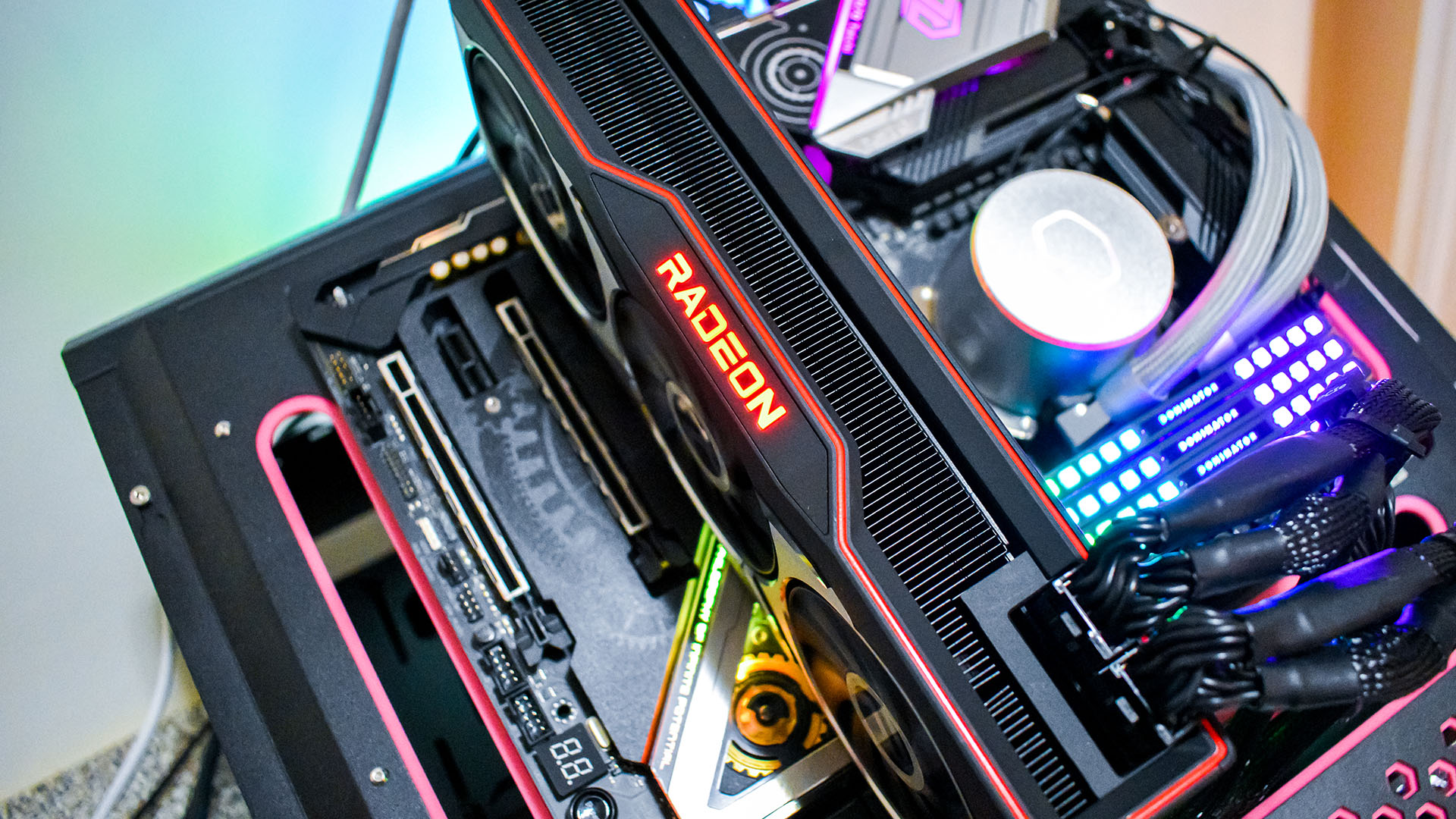Finger of blame for cracked AMD GPUs points at crypto-miners, not graphics driver
Big mining operation seemingly at fault

AMD RX 6800 and 6900 graphics cards recently came under the spotlight after a bunch of them broke due to the GPU actually physically cracking, and we now have an apparent answer as to why this happened.
This comes from KrisFix on YouTube (who runs a German repair shop that fixes hardware), who noticed the many such AMD GPUs that were turning up on his doorstep that had died due to cracking.
At the time, speculation was rife about AMD’s driver being a possible cause – as all the owners of these graphics cards had been running the latest version – but as KrisFix explains in a new YouTube video (highlighted by Tom’s Hardware), that wasn’t the case.
In actual fact, KrisFix proposes a theory that the issue was caused by a combination of two factors: the GPUs being ex-crypto-mining models, and the way they were stored before sale.
KrisFix notes that the problem cards were all sold towards the end of November, or start of December 2022, and likely came from the same second-hand source – namely a crypto-mining farm selling off a load of these AMD Radeon models.
So, the idea is that these graphics cards were driven super-hard 24/7 in their mining duties, and then likely stored in a poor environment, maybe a warehouse with high humidity levels.
Meaning that when the buyers got their GPUs through, they worked okay to begin with, but then when gaming (or other intense workloads) pushed the chip temperatures up high, due to the damage from the excessive humidity (combined with all those previous miles on the clock from mining), the GPU simply cracked. Owners might have got a day or two out of the cards – maybe even three – before they went pop.
Sign up for breaking news, reviews, opinion, top tech deals, and more.
All of the broken graphics cards exhibited the same kind of damage, and were in a similar state overall – with the coolers having been cleaned, too. (Normally, a second-hand graphics card would have some dust in there, but in this case, all cards were clean, which suggests the mining farm owner had them all spruced up before putting them on sale).
Analysis: The dangers of the second-hand GPU market
This is no surprise really, as when we originally reported on this problem, we noted that the affected models could be ex-mining GPUs. What KrisFix says here makes sense to us, and also explains why we aren’t seeing this issue elsewhere – a local mining operation shut down, and sold off all its graphics cards (stored in the same way) to buyers in the area, a good many of whom turned to this repair shop to address their woes when the GPU went pop.
The good news, then, is that this won’t be a widespread issue for RX 6900 and RX 6800 models, and that AMD’s graphics driver isn’t at fault (which KrisFix underlines in this latest video).
Instead, then, this episode serves as a pretty clear warning on the dangers of buying GPUs which have previously been run ragged in a big mining farm, and that it’s not just the workloads they’ve been subjected to, but also the ravages of the environment (and even storage post-farming life, before the cards are actually sold off).
In short, buy an ex-mining graphics card at your peril, because there are definite and clear risks associated with these GPUs. The trouble is that sellers often don’t reveal that a second-hand card is ex-mining stock, because they know that’s off-putting to many folks. So you’re left in a situation where you have to trust the reputation of the seller, and their integrity in being truthful about the past life of the graphics card.
All these dangers are very much amplified in a time where crypto falls off a cliff, as happened last year, and mining operations give up, and obviously look to sell off their stock as a final cash grab. In times like these, the used GPU market can become a bit of a minefield, so tread particularly carefully when buying second-hand.
Darren is a freelancer writing news and features for TechRadar (and occasionally T3) across a broad range of computing topics including CPUs, GPUs, various other hardware, VPNs, antivirus and more. He has written about tech for the best part of three decades, and writes books in his spare time (his debut novel - 'I Know What You Did Last Supper' - was published by Hachette UK in 2013).